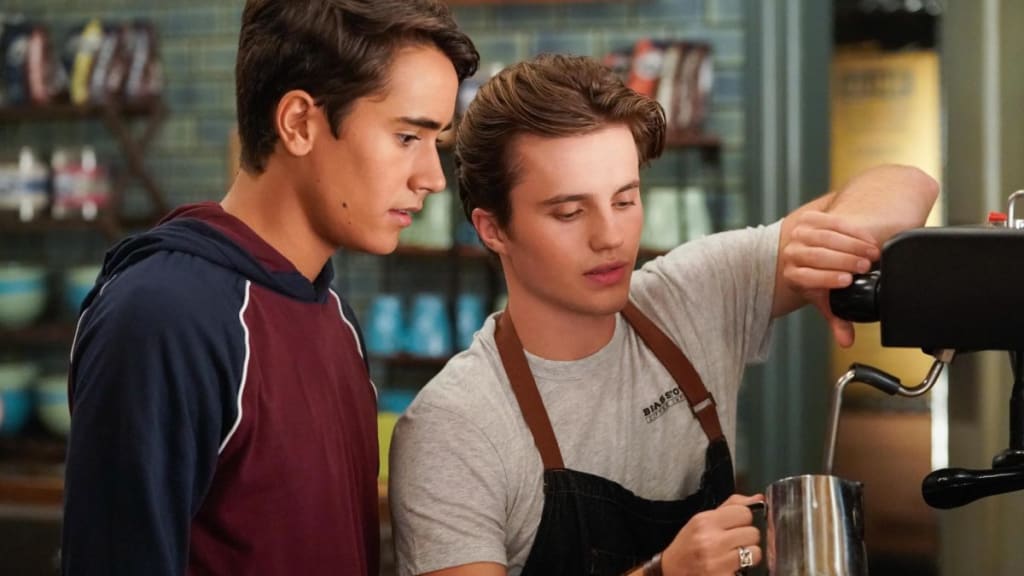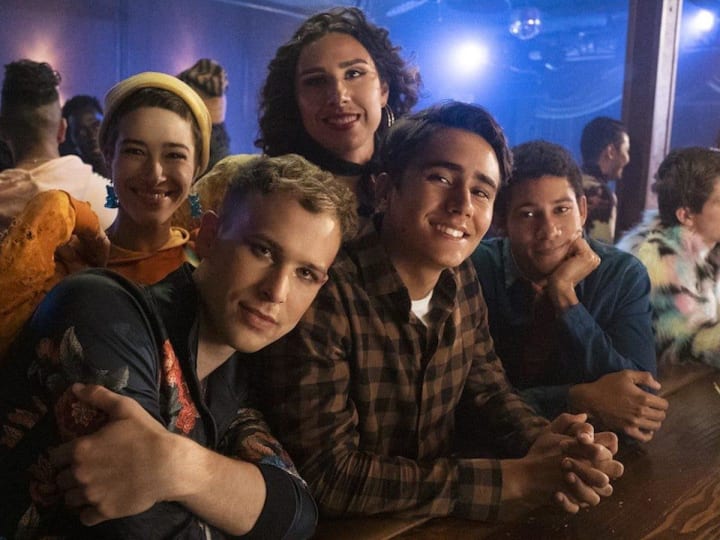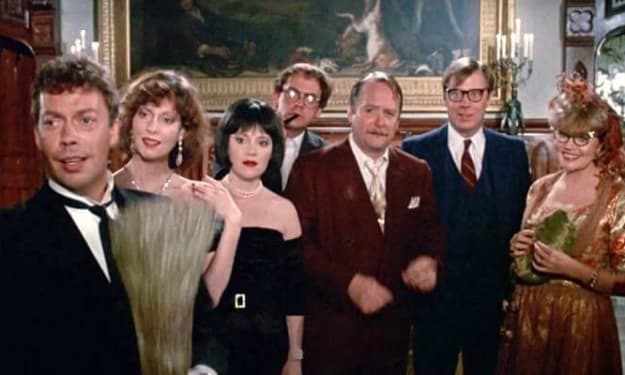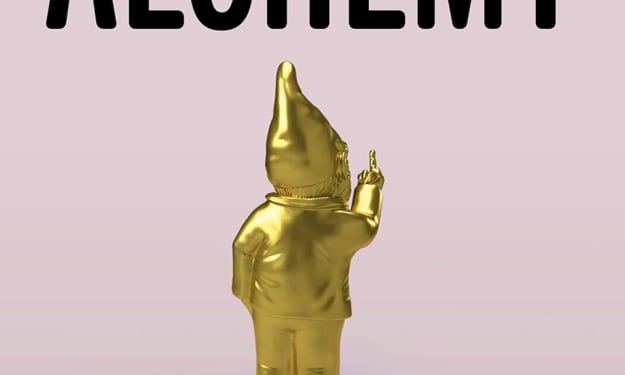4 Major Lessons We All Should Take From 'Love, Victor'
If you learn anything away from the Hulu series, these are the important takeaways.

Hulu is stepping into the spotlight regarding its array of LGBTQ+ content and its latest offering comes as the continuation of the 2018 movie, Love, Simon. With Love, Victor, we follow a new character as he enters Simon's old high school a few years later. Similar themes of sexual identity hover over the show, but it serves as a solid follow-up to a groundbreaking major motion picture featuring, for the first time, a gay teen romance.
So far, the reception of Love, Victor has been fairly positive. The story is cute, the characters are likable, and the connection it has with its sort of prequel is a nice element. But even with the connection, the show focuses on a lot of things that the movie didn't. Even though both stories serve as a tale of one's journey to sexual identity and self acceptance, Love, Victor gives a bit more in the life lesson's department and they're all very relevant to current social and cultural situations.
With this article, we'll reflect on the four biggest life lessons you can take away from Love, Victor. While some are obvious, others are a little more under the surface. But nonetheless, they're all important!
In case this goes without saying, this article has spoilers for the Hulu series, Love, Victor.
4. The LGBTQ+ community comes in all shapes and sizes

In case you weren't aware, the LGBTQ+ community is incredibly diverse. The unfortunate part regarding Hollywood representation is the portrayal of the community doesn't always reflect the diversity that exists. Love, Victor tries to tackle this in the sense that the LGBTQ+ representation the series displays isn't overwhelmingly white and binary.
Aside from Victor being a gay, athletic Latinx teen, we are reminded that Simon's boyfriend, Bram, is an athletic African-American. When Victor spontaneously decides to visit Simon in New York City, he's introduced to Simon and Bram's queer roommates including makeup friendly Justin and a trans woman named Kim, played by non-binary, intersex activist River Gallo. In other words, the apartment served as a solid representation of the variety of individuals you find in queer communities and groups. Despite the (sadly) common cultural criticism of diversity being forced in Hollywood, Love, Victor embraced the queer community and celebrated it.
Similar to Bram displaying how he found acceptance with a queer basketball league, how Justin displays his true self away from the religious doctrines he was raised with, and by experiencing his first drag show, Victor received an important lesson that there is no one way to be a part of the LGBTQ+ community. Victor could still be gay despite being an athlete from a Texas-based religious Latinx family.
3. White privilege really does exist
Love, Simon had quite a few elements that it's follow-up didn't have. Even though both shared a rather overwhelming representation of diversity, it also included very accepting, affluent parents, fairly problem free daily life, and a main character who eventually goes off to attend NYU. With Love, Victor, we see a much different picture of Creekwood High School regarding underlying classism and race.
Right from the beginning, Victor is approached to join varsity basketball but needs to get a job to pay for the sports fee. As a joke, a more affluent and popular student creates a GoFundMe page to mock the fact that Victor's family lives in the "poor" side of town. Despite Mia's father being the head of a university, she was raised solely by him because her mother left them when Mia was a baby. To follow the trend, Victor's parents are more conservative and religious, but fell victim to infidelity and ultimately decide to do a trial separation. What do these characters have in common? Well, none of them are white.
I'm not mad at the struggles portrayed within the show because they are realistic. Every family has something and, yes, there are rich and poor kids in school, but the important lesson reflected is Simon was incredibly privileged and Victor knew it. Right off the bat, Victor tells Simon that he has no idea what his life is like because their experiences up to that point were so different. The saving grace is that Simon is aware enough to agree.
2. Don't behave like Victor's family

Speaking from personal experience, this is a valuable lesson for everyone. Even if you consider yourself an accepting person, there is always room to learn that how you talk about certain groups or individuals can cause a lot of damage without you even knowing it. This applied to Victor's family in terms of how they not so subtly expressed their feelings regarding the LGBTQ+ community without knowing the damage it was doing to Victor.
At Victor's birthday party, he invites Benji and his boyfriend but feels compelled to lie about their relationship to his grandfather because he isn't accepting of homosexuality. This hurts his friends and also hurts him because not only does he feel forced to lie, but he is scared of the commentary that would come if he ever came out to his family. Similar criticism came from Victor's father regarding his younger brother, Adrian, and the fact that he loved an Elsa toy from Frozen (aka, a girl toy) instead of a more boyish toy. Hearing his father basically say he hopes playing with a girl toy won't make his son gay is a lot to process, especially when someone is as confused as Victor was.
The main takeaway is to be mindful of what you say. Commentary like "I sure hope they won't be like that," or "why do you let your son play with girl toys" can weigh very heavily on someone who doesn't quite understand what is going on with their sexuality. It can (and often does) increase confusion, paranoia, and self-hatred.
1. The LGBTQ+ community deserves cute love stories, too

If you search for romantic comedies, you'll find one major thing in common with about 99% of them - they are all hetero stories. Tales of boy meets girl, girl falls for the unexpected boy, or whatever else, the main characteristic of most romantic stories is that they include mostly white heterosexual characters. If you do have diverse or LGBTQ+ characters, they're often reduced to supporting roles or extremely stereotyped. They're cute, silly, and we all love them, but at some point you have to recognize that the lack of representation for other people is ridiculous.
Love, Simon was a game changer in the sense that it was the first mainstream, big studio movie to focus on a gay teen romance. The story could have featured any straight couple where a teen girl or boy is anonymously communicating with their future soulmate of the opposite sex and would have been just as heartwarming, but instead it focused on a gay teen boy trying to find the identity of a boy he was emailing. Not only that, but it featured a diverse cast and the subject of Simon's affection was an African-American.
The same point could be made for Love, Victor. It literally could have been just as cute and representative if Victor were straight and his relationship with Mia was "normal." However, just like Love, Simon, the story didn't turn out that way. Victor comes out as gay shortly after his 16th birthday and he finds a connection with another openly gay teen. Also like its predecessor, it celebrates diversity by including Latinx, African-American, and non-binary characters.
Why? The LGBTQ+ community deserves to have love represented in the same way as hetero-normative stories. We are deserving of seeing a cute gay couple get together or rooting for someone to leave their current partner for a person who is more into them. We've seen it in movies and television for decades with a boy/girl and man/woman scenario. It's time for other sexualities and genders to be recognized.
About the Creator
Jenika Enoch
I love movies, music, sci-fi, and art. I'm a certified graphic designer and create my own art. Things that fuel me include equality, respect, and anything weird.






Comments
There are no comments for this story
Be the first to respond and start the conversation.